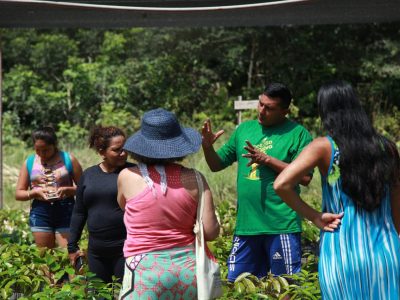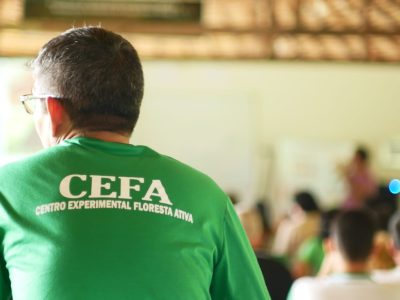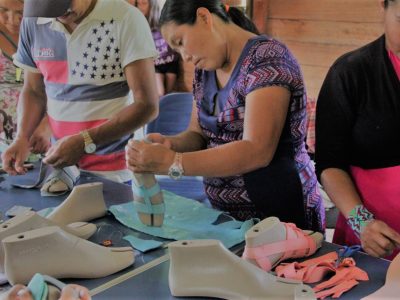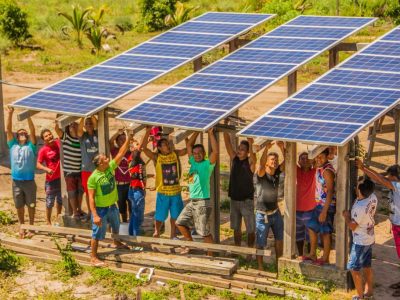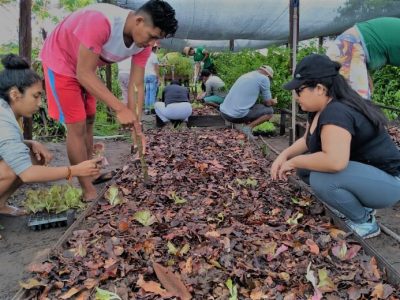Forest economy
Socioenvironmental Business Incubator
For the Forest Economy to have solid and autonomous long-lasting expansion, the communities must take a proactive role in the development of their businesses. Therefore, PSA is consolidating the projects promoted by Active Forest in a business incubation model.
At the LabCEFA school at CEFA, projects are created following the concept of startups: after annual entrepreneurship courses at the LabCEFA school, offered in partnership with professors from the Federal University of Western Pará (UFOPA), projects that will be supported, incubated and accelerated are selected.
Additionally, LabCEFA offers regular training and functions as an experimental laboratory of collaborative production in areas such as woodwork, renewable energies (Electricians of the Sun), rubber work and tools and solutions for family farming.
In partnership with WTT (World-Transforming Technologies), Invento Institute and the MIT Lab (from the Massachusetts Institute of Technology), Active Forest also stimulates the development of technologies by the communities themselves. The Appropriate Technologies Design and Co-Creation Workshops (D-Lab) adopt the maker methodology so that simple and low-cost solutions improve the efficiency of daily activities.
PSA also offers professional training in electricity and engine mechanics with a 16-hour course load in partnership with the National Industrial Training Service (SENAI),
Market studies and production potentials
This work is based on analyzing the markets in which Active Forest projects are included or may be included. This is done in concert with partner grassroots organizations in order to evaluate the businesses, identify demands, build strategies and plan integrated actions. This process includes studies on the economic viability of businesses in the socio-biodiversity chains, market studies and mapping of vegetable species for meliponiculture, production of oils and essences, and for forest repositioning.
In the study stage, Active Forest has identified the businesses which will receive advisory support: Apruspebras (CEFA/Resex), Coomflona (Jaguarari/Flona), Acosper (EcoCenter/Santarém) and Turiarte.
Business plan, revolving fund and microcredit
In the acceleration model, Forest Economy entrepreneurs also receive better structured technical advisory, with the development of business plans and the definition of legal nature (MEIs – individual micro entrepreneurs -, co-ops, social businesses and/or other structures).
In order to boost and accelerate the sustainable economic forest activity, PSA plans to establish a revolving fund, with microcredit lines for working capital and expansion of businesses and community projects, for all productive chains supported by Active Forest.
As such, the fund will serve small agricultural and agroforestry producers, producers of honey, oils and natural essences, farmers of fish and small animals, artisans, community-based tourism agents and support service providers (such as transport and warehouses). In addition, credit will serve for installation of infrastructure, including renewable energies, water supply and telecommunications.
See also
Agroecology and Repositioning of the Forest
Socioproductive Units
Community and Artisanal Tourism
Energias Renováveis
Sociobiodiversity Chains
Rádio Mocoronga
Contact
- Av. Mendonça Furtado, 3979
- +55 93 3067-8000
- +55 93 99143-1091
- psa@saudeealegria.org.br
HOW TO HELP
Projeto Saúde & Alegria © 2020
Agência Fervo

